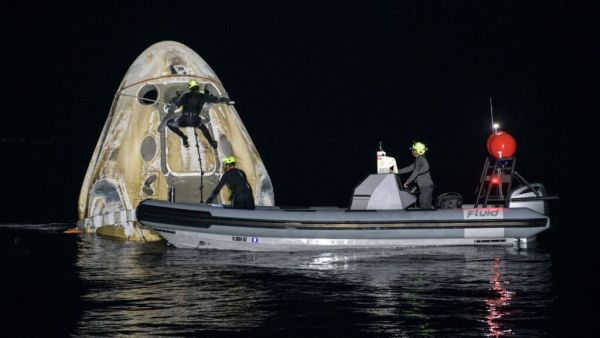
New delhi: Indian Astronaut Shubhanshu Shukla, Along With His Three Other Colleagues, Returned Safely to Earth from Spece on TuesDay, June 15, 2025. All of them was alle of them was alt ‘Grace,’ which has a successful splashdown in the pacific ocean near the southern california coast of the us, reports Read Correspondent.
Since the landing of spacex’s dragon spacecraft ‘Grace,’ a question that intrigues Everyone’s mind is why the spacecraft was landed in the ocean inste of on land. Why do scientists Prefer Oceans Over Land? What’s the Science Behind it?
Why do spacecraft land in the sea only?
Many people have this question in their mind: Why are spacecraft landed in the sea only, and why not on the ground? There is a scientific reason behind this.
What is the splashdown process?
When the spacecraft returns to earth, its speed is thirds of kilometers per hour. Due to such high speed, there is excessive friction with en which is the atmosphere, which generates treminous heat.
To withstand this, a special heat shield is installed in the spacecraft. As soon as the spacecraft enters the atmosphere, a parachute is used to reduce its speed. After this, the spacecraft is landed in the sea, which is called ‘splashdown.’
Why is water chion?
Water acts like a natural cushion. When a spacecraft lands in water, the shock is much less than on land. This causes less damage not only to the spacecraft but also to the astronauts in it. Whereas during landing on land, the surface can be rough or sloping, which increases the risk of accident.
Is landing on land possessible?
In the opinion of some experts, if the surface is flat, then a safe landing can also be done on land with the help of a parachute. However, if some ising goes wrong doging in the sea, it can be challenging to get the spacecraft and the people in it out of the water.
Stay tuned to Read For more stories like this.